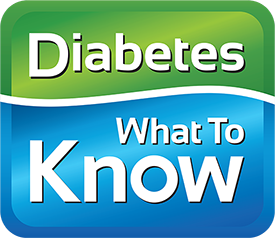By Madeleine Ortiz
“I hope they warned you I’m a straight-shooter,” Cindy says about 20 minutes into her interview. I smile, because she says it like it might sometimes rub people the wrong way, but I’ve been refreshed by her openness and her uncanny ability to be both strong and humble at the same time. I’m also engrossed in her impressive story – she’s managed to take charge of her diabetes in just 5 short years while also acquiring an almost unbelievable wealth of knowledge about diabetes. And the best part? She’s happy to share her personal experience and huge mental library with anyone and everyone who might benefit from it. Here are eight of her best tips.
Carbs aren’t evil.
After her initial diagnosis, Cindy became extremely rigid with her diet. She’s a take-charge person and she wanted to be the boss of her diabetes. While her strict strategy certainly helped get her diabetes in check quickly, it also took up a lot of time and mental real estate. “Even my dietitian was worried about me,” she reminisces, “but I didn’t want to do anything that would spike my numbers or lead to complications.” A big turning point for her, she says, came with the help of her concerned dietitian. “My dietitian really wanted me to eat a piece of peanut butter pie on my birthday,” she chuckles now at the memory. “And after I ate it, she called me every hour.” Cindy checked her numbers every time she called, and sure enough, though it was a little higher than the range she normally liked to stay in, it was nothing drastic or dangerous. It wasn’t like a switch flipped immediately, but that exercise opened Cindy’s eyes to the idea of moderation or the 80/20 rule. Over time, Cindy has learned not to worry if she doesn’t perfectly adhere to an eating plan and even how to incorporate the occasional treat into her diet. She says she’s now way more flexible – and less stressed for it!
Healthy food can taste great.
Healthy food isn’t just for people living with diabetes… healthy eating is for everyone. That’s why Cindy gets frustrated when she hears people saying that they could “never eat like her.” “It’s just closed-mindedness,” she says. In her opinion, it’s easy to make food that tastes great and is good for you. “There are so many delicious healthy casseroles and other great recipes,” Cindy tells us. “Tell me what you want to eat, and I’ll find you a recipe that you can have without the guilt.” Don’t miss out on a longer and healthier life because you are convinced you’ll feel deprived if you change your eating habits. Eating healthy doesn’t mean just eating salads, and Cindy promises that once you get the hang of cooking the healthier stuff you won’t even miss the way you were eating before.
This disease is your own.
As a mom, a wife and someone who has spent most of her life being the household chef, Cindy can understand how getting a diabetes diagnosis can instantly make menu planning more frustrating, especially if family members or the people around you just aren’t interested in changing their eating habits. But it’s important to remember that this diagnosis and this disease is your own and you can’t expect others to be as invested in new foods and a new lifestyle as you are. Can you do your best to find diabetes-friendly meals that everyone enjoys to eat? That’s what Cindy recommends so you aren’t making two different dinners every night. At the end of the day, however, you’re the one with diabetes and you need to commit to being your own biggest cheerleader.
Emotional eating is normal.
“I ate a fun-sized Almond Joy today after lunch,” Cindy tells us, “and I didn’t even want an Almond Joy really. I just wanted chocolate. So I ate it and it made my mouth happy.” Lots of people think that in order to successfully manage their diabetes they need to eat only for nourishment. According to Cindy (and many healthcare experts too !), though, detaching food from emotion 100% of the time just isn’t possible. What is possible, she says, is acknowledging when you’re eating something simply to satisfy a craving or provide a little bit of comfort – and then moving on from it. Recognizing that it’s normal makes it much easier to move on from afterwards rather than having it turn into a full-on binge- and that makes it much less likely to affect numbers or weight.
It’s OK if priorities fluctuate.
Right now, things are definitely not easy for Cindy. While recovering from a breast cancer diagnosis, is now helping her husband manage a cancer diagnosis of his own. She misses seeing her sweet grandchildren and is juggling a slew of other personal challenges. Determined and strong, she doesn’t share too many details – and when she does, it’s not for sympathy but to help others realize that sometimes life doesn’t go even close to the way we want it to. Cindy decides each day what is most important at that moment. “I never neglect my diabetes or myself completely,” she says, “but if I’m at the hospital with my husband and the only option for food is the vending machine, it is what it is.” She knows that whenever things become less urgent in other areas she can refocus on herself and her own health. A few days of being “off track” or “not my number one priority” will not negate all of her years of hard work. Caring for yourself is important, but that doesn’t mean you put everyone else you love on the back burner. Just assess priorities day by day and do what you can, when you can.
Managing diabetes is easier after weight loss.
In the first 10 and ½ months after her diagnosis, Cindy lost 70 pounds without any organized exercise or medical interventions. “To be honest,” she says, “once I changed my eating habits, losing weight wasn’t that hard.” What also surprised her was how much easier her diabetes was to manage after the weight came off. When she was first diagnosed, she recalls oatmeal being virtually impossible to eat because of the spike it caused in her blood sugar. Now, 70 pounds lighter, she can eat oatmeal without seeing the same spike. “Some people will need medicine to manage their diabetes no matter what they do,” she says matter-of-factly, “but that doesn’t mean medication should be the only tool they use.” She really encourages everyone to make healthy choices that can lead to weight loss. She knows from experience that it will make daily living with diabetes a lot less challenging.
The word “reversal” is a misnomer when it comes to diabetes.
“I hate the word reversal,” she proclaims. Though Cindy has her diabetes controlled without medication, she knows it never really goes away. “If I go back to my old habits, I’ll be at risk for all the same complications I was five years ago,” she says. Instead, she prefers the word remission. It gives her an opportunity to recognize all the hard work she’s put in and what she’s accomplished, but it doesn’t give a false sense of security.
Live in the moment.
When life gets busy or stressful, Cindy is constantly reminding herself to “live in the moment.” “It’s not easy,” she’s quick to say, “but it’s important.” The only real things we can control are how we react to the things happening right now, so there’s not a lot of benefit to fret about something that’s already happened or something that might happen in the future. (Especially because long-term stress can impact blood sugar levels.) Instead, do what you can in each moment. Take time to appreciate the little things. Let go of what you can’t control and just breathe. It’s something Cindy practices daily. Some days are easier than others, but the more she focuses on the moment, the better she feels. “Learning to go with the flow is sometimes the only way to deal with difficult situations,” she offers sagely, “in diabetes and in life.”
If you’d like to join a diabetes support group to learn and share with others, join here.
The medical information on Diabetes – What To Know’s website is provided as an information resource only. The content is not in any way intended to be nor should you rely on it as a substitute for professional medical evaluation, diagnosis, advice and treatment.

